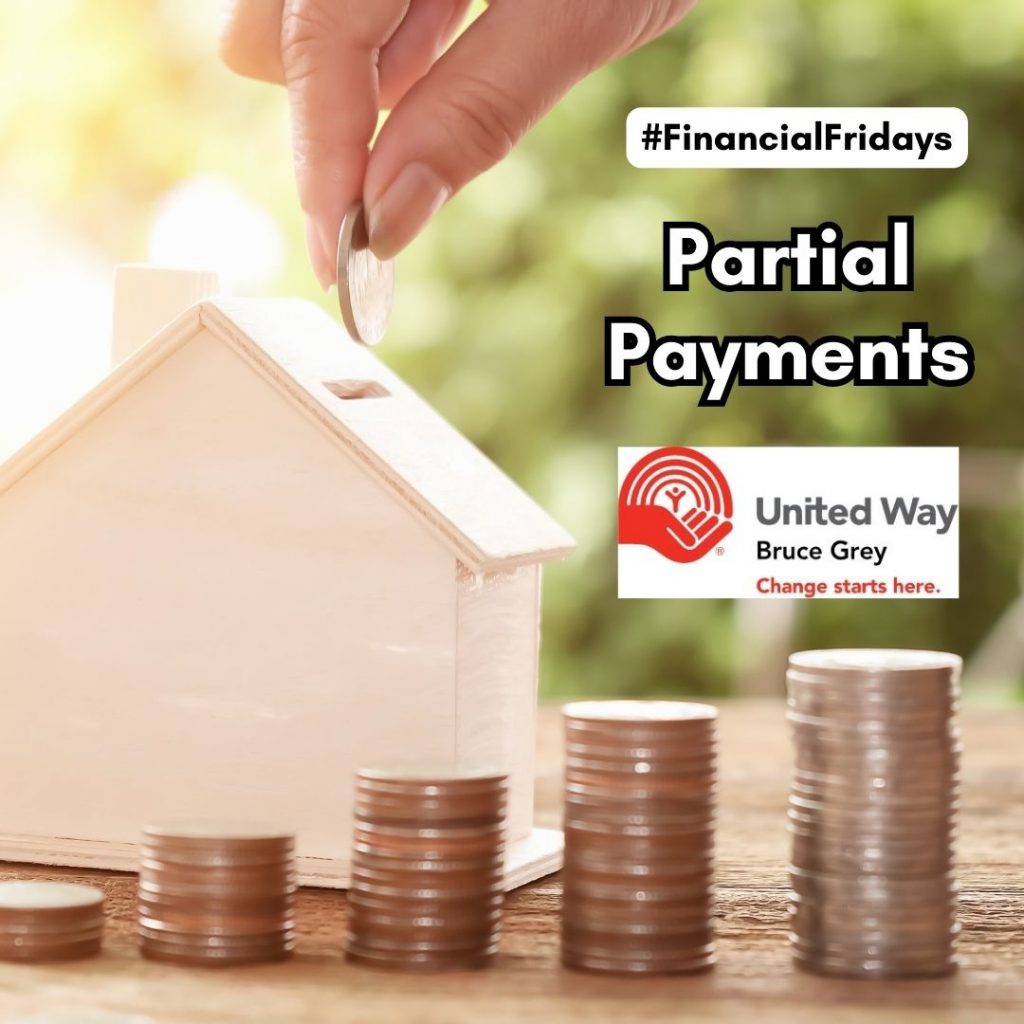#FinancialFridays: Partial Payments

If you are not able to make a full payment to a bill, make a partial payment.
- This shows “good faith” – honest or sincere intention – to the company or person you owe money. That can help in building or keeping a positive relationship.
- It stops your debt from increasing by the full amount, which may be charged interest, and will need to be paid back in the future.
Here is an example.
If your rent is $1,500 and your automatic payment bounced, call your landlord right away. Let them know that you know the payment bounced. That shows you are committed to making the payment and interested in working cooperatively with them. If you don’t have the full $1,500 (which makes sense if the payment bounced), ask if you can make a partial payment and a second payment later in the month or over the next few months to catch up.
Make a realistic plan for catching up; not honouring an agreement for catching up can hurt your relationship with your landlord even more.
Here is how making a partial payment can help you move forward:
- Rent payment of $1,500 bounced. Say you don’t make any payment. You now owe your landlord $3,000 the next month: $1,500 x 2 months = $3,000.
- Rent payment of $1,500 bounced. You make a partial payment of $1,000 to your landlord within the first week after your rent was due. You now owe your landlord $2,000 the next month: $500 left from the previous month + $1,500 = $2,000.
It is easier to catch up on a lower debt amount than a higher one. And you show initiative in working with your landlord which may help your relationship.
What other bills would you make partial payments to if you can’t pay the full amount?


